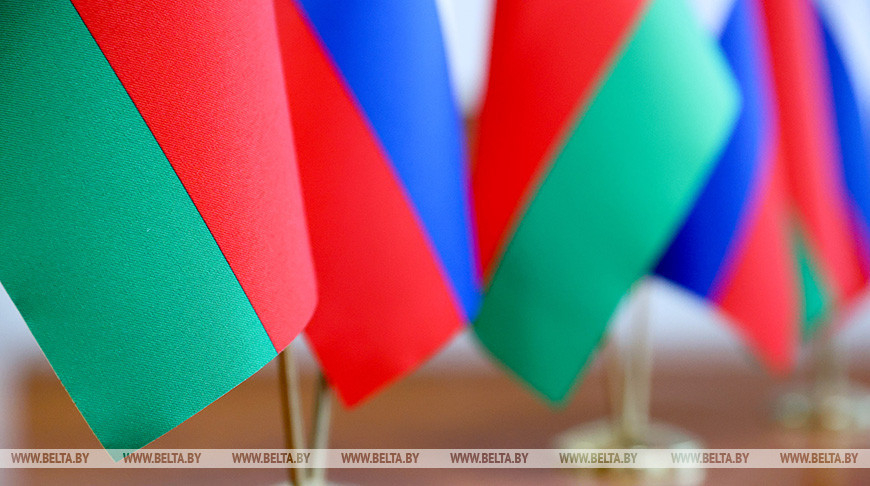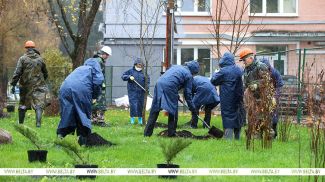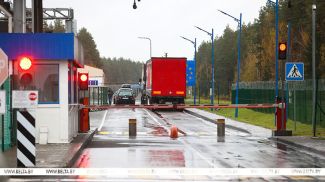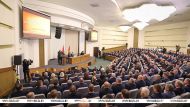
VITEBSK, 26 June (BelTA) – Representatives of the Transport Inspectorate of the Belarusian Transport and Communications Ministry and the Federal Authority for Transport Oversight of Russia met in Vitebsk to discuss experience concerning the prevention of crimes among shipping companies, methods for unifying transport industry regulations within the framework of the Union State of Belarus and Russia, BelTA has learned.
A working meeting of representatives of the Transport Inspectorate of the Belarusian Transport and Communications Ministry and the Federal Authority for Transport Oversight of Russia is taking place in Vitebsk these days. The day before both delegations visited Russia’s Smolensk Oblast just across the border where Belarusian specialists were made familiar with the experience of their colleagues and determined what practices can be borrowed. In particular, they found out how commercial entities specializing in shipments by road are discouraged from committing crimes. The relevant Belarusian and Russian laws differ and Belarusian specialists will look for the norms that can be assimilated.
The parties also discussed ways to promptly share transport control data. For instance, if a semi-truck passes transport control procedures on the Russian side where the freight shipping license is checked as well as the legality of the freight, then the truck will not be stopped on the Belarusian side because the same information would have been shared by Russian colleagues.
First Deputy Chief of the Transport Inspectorate of the Belarusian Transport and Communications Ministry Yuri Kostyuk noted: “The meeting is taking place as part of the integration of the Union State of Belarus and Russia. During the session we say that a single state needs the same approaches to the same matters. We have to deal with huge freight traffic and passenger traffic these days. International shipping provides for having the same requirements in the territory of the Union State of Belarus and Russia. Carriers and passengers should not feel any inconvenience upon reaching the border. This is why we compare notes, work out common approaches, and look for ways to adjust the legislation in order to present the same requirements in our field. We also look for the options we can embrace in information sharing in order to analyze information about a foreign transport vehicle, for example. Besides, we look into matters concerning the mutual recognition of debts for things like road toll and fees for the passage of oversize vehicles that damage roads.”













